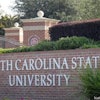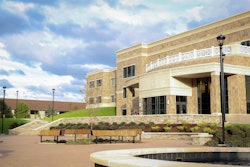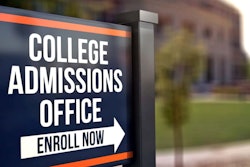Higher Education’s Tough Economic Times Affect Recruitment, Studies Say
RESTON, Va.
The past year’s sagging economy has caused many schools to retool their recruiting tactics, according to findings in a new national survey released last month. A separate report, also released last month, predicts that the current financial problems facing higher education could last as long as a decade.
Some 58 percent of the 330 institutions participating in “The Impact of September 11th on College and University Enrollments” study reported having altered their recruiting tactics because of decreased funding and other effects related to the slow economy.
“I don’t think anyone could have predicted the extent of this economic downturn or the impact it has had on colleges and universities,” says Dr. Lana Low, a senior executive with educational consulting firm Noel-Levitz, which conducted the study. “But schools have shown that they can be flexible and change tactics mid-stream in order to meet their goals. They have done so, in part, by changing their messages to prospective students.”
The changes Low refers to include everything from emphasizing affordability, location and safety in correspondence with prospective students, to creating entirely new communications materials.
The majority of enrollment managers and admissions directors surveyed reported that their operating budgets have been negatively affected. Some 82 percent of the four-year public schools and 70 percent of two-year institutions reported decreases in state/government funding. Schools also reported decreased endowments and roughly one-third of all schools surveyed said they have reallocated funding to offset deficits. Increasing tuition was a solution chosen by 31 percent of four-year private schools, 51 percent of two-year institutions and 67 percent of four-year public schools surveyed.
In a separate report, released by the San Jose, Calif.-based National Center for Public Policy and Higher Education, it is noted that higher education’s tough times are likely to continue for some time. The center bases its claims on an examination of current fiscal shortfalls at the state level. It looked at revenue and expenditures needed by states to maintain current public service levels over the next eight years within current tax structures, using conservative estimates of expenditures. The report projects that all but a handful of states will find it impossible to maintain current levels of public services. If economic growth is slower than anticipated, the outlook for support of higher education will be even worse, center officials say.
“What these shortfalls suggest is that states will continue to face fiscal stress even after their economies strengthen,” says Dennis Jones, author of the Policy Alert.
Survey results from the Impact study are available for public view at
© Copyright 2005 by DiverseEducation.com





















